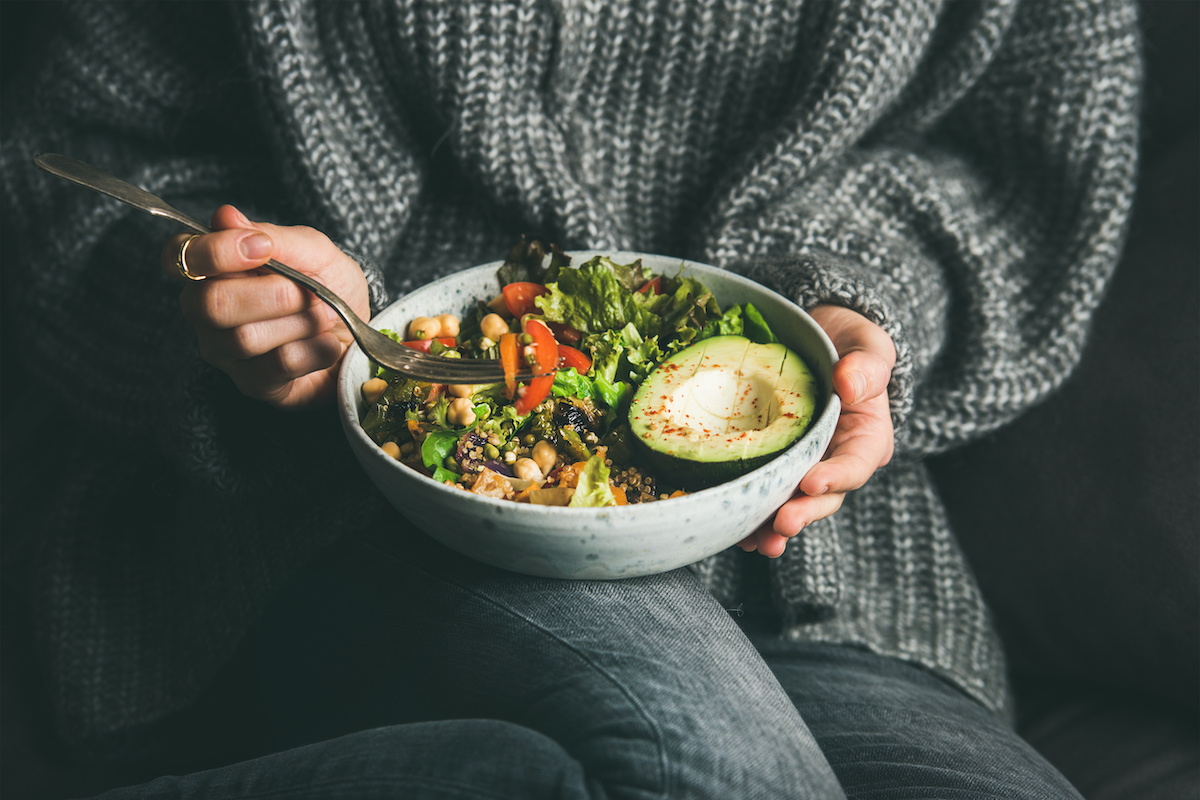Ask Dr Adam: Is Eating Just One Meal A Day Healthy?

Idiosyncratic tech entrepreneur has idiosyncratic wellness routine; go figure. But there is one particular part of Twitter founder Jack Dorsey’s regimen that caught our eye and sparked some interesting debate at Form HQ. In an interview with Wired, Dorsey states that he only eats one meal a day — just dinner — which he has seven times a week. In a previous interview, he says this is a “really big meal” that consists of protein like fish, chicken or steak, and “a lot of greens“. He then has “mixed berries as a dessert, maybe some dark chocolate.”
A number of questions are posed. What are the health benefits here? Is it sustainable? Don’t you get hangry, Jack? We asked our resident expert and head of nutrition here at Form, Dr Adam Collins, if he could shed some light on the topic for us.
Is One Meal A Day Healthy And Sustainable?
The idea of having just one meal a day is an interesting one and can be viewed from a couple of perspectives. In essence this is a form of intermittent fasting, specifically time restricted feeding, with a very limited eating window. Technically this would be less than the typical eight hour window (e.g. the 16:8), but metabolically will mean that they would be in a post-absorptive/fasted state for up to 20 hours each day, moreover in a truly fasted state for up to 14 hours out of 24.
The fact that it is dinner that is the only meal does potentially differ from if this was breakfast, down to the circadian and diurnal influence. Circadian influence relates to programmed cycles across 24 hours as a consequence of the biological central clock (and peripheral clocks). The diurnal pattern generally relates to the active (day) versus inactive (night) period, but also the effect of feeding during the day and not feeding during the night.
Eating In The Morning Versus Evening
There is a consensus that clearance of a meal (carbohydrate and fat) is more effective early in the active period (i.e. the morning) compared to in the evening, due to better insulin sensitivity in part, and a circadian effect. But also because you are often eating that meal following a long period of not eating. Hence eating later means you have a longer postprandial period, and sometimes have not fully returned to baseline come morning.
Given that this dinner is the only meal of the day, then you may be better at clearing this meal than under a dinner under normal meal patterning for reasons above, but even if takes longer you will have plenty of time to clear and deal with everything, even in a large meal. There is also some suggestion that if you are consistently eating only dinner then you can entrain yourself to be better at coping with this meal, as your peripheral clocks (in pancreas, gut, liver, muscle) are entrained to that meal timing.
Meal Skipping
Then there is the issue of meal skipping and compensatory eating. We know that skipping a meal (or two in this case), will obviously mean you are not eating those calories. From studies on meal skipping, it has been shown that although people end up eating more in subsequent meals, they typically do not eat enough extra to compensate for the missing calories in the skipped meal.
Hence even with a big meal for dinner, this theoretically will have to be more than 2000 kcal (likely 2500-3000kcal) to compensate for the lack of other meals.

Concluding Thoughts
So the question is how sustainable and healthy is doing all this? In terms of sustainability, it depends on lifestyle but given that most people energy load in the evening, this could be quite sustainable to refrain for the rest of the day. As already mentioned, provided this is consistently done, then this should also be sustainable from a health perspective.
How healthy is it then? There are certainly some theoretical metabolic benefits I have outlined but with a couple of caveats. The first is that one meal a day means a requirement to get all your nutrition technically from this one meal. Hence that meal needs to be well thought out and nutritious.
On the surface, the description of the typical dinner could be conducive to this, but you would need to try it out to ensure you can devise a meal that is providing you with the nutrition you need while still being palatable — is it too bulky, or too satiating to finish, for example. You could argue it may be easier to plan your nutrition in just one meal rather than across a variety of meals and days. But it may be very boring and limit the variety of things you could eat.
Given that consistency in the meal pattern is key to most of the aforementioned metabolic benefits, there may be little wriggle room to be flexible like in a normal diet. In reality, most people don’t eat healthily or unhealthily all the time, and not be in energy balance meal to meal, day to day. This variability is easily accommodated by your metabolism. Whereas the one meal a day regime is rigid and regimented by design.
It may help program your metabolism and is easy to do without having to worry about what to eat when. This is why as a diet ‘hack’ it has some appeal. But it does take the enjoyment and flexibility out of how you eat and live.


















